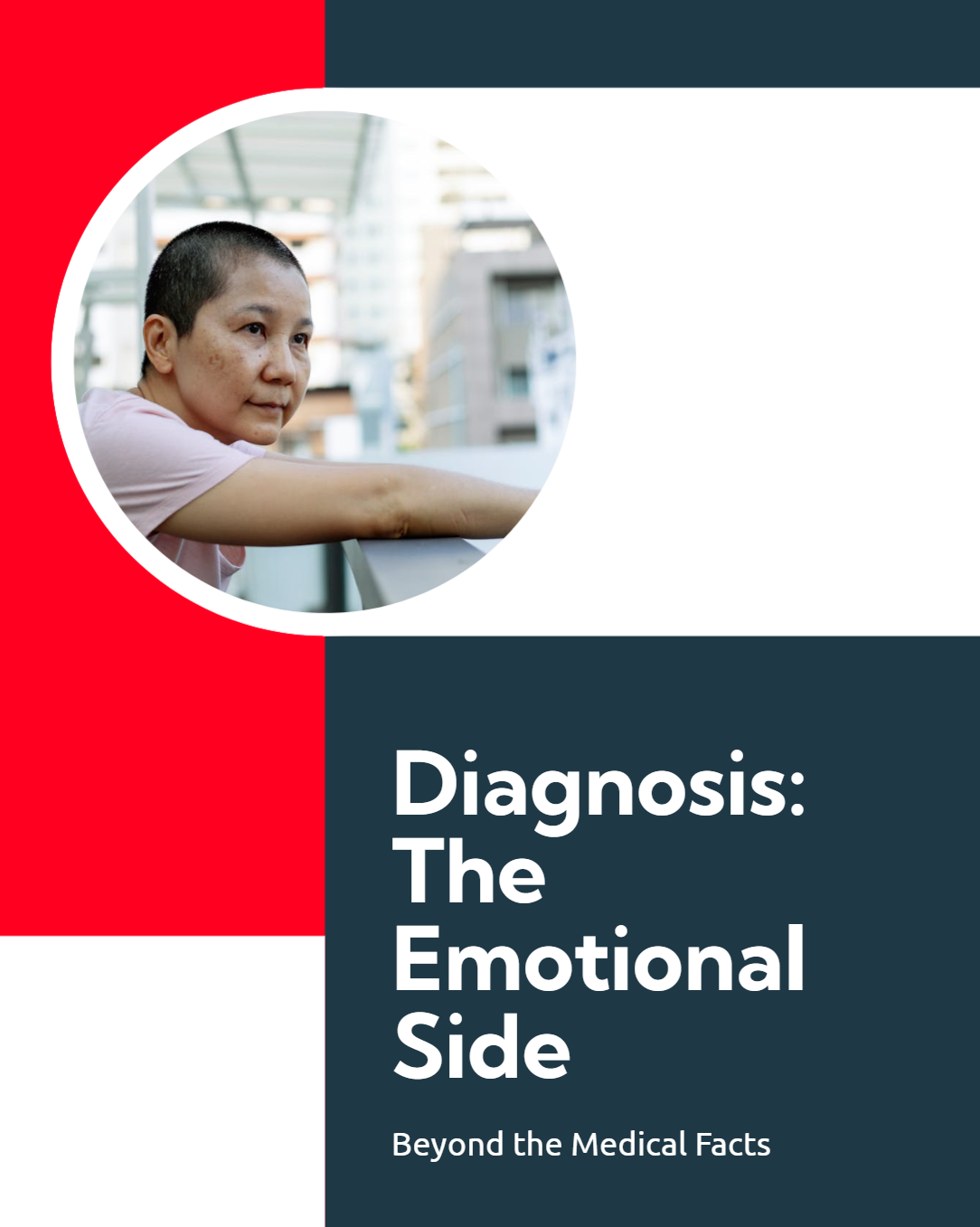
Receiving a diagnosis, whether it’s for a chronic illness, a mental health condition, or something more severe, is a pivotal moment in anyone's life. It’s a moment often marked by confusion, fear, and uncertainty. While much of the focus is placed on treatment plans and physical symptoms, the emotional impact is just as significant—and often overlooked.
This article delves into the often-unspoken emotional journey of a diagnosis, exploring the highs, the lows, and the steps you can take to navigate this challenging time.
The moment you hear the words, "You have [condition]," your world can feel as though it’s collapsing. Many people report experiencing a mix of disbelief, fear, and numbness. This initial shock often sets the tone for how the emotional journey unfolds.
When faced with a diagnosis, your body may trigger a fight-or-flight response. You might feel an urge to research relentlessly, seek second opinions, or completely ignore the information out of fear. This physiological reaction is normal but can cloud your ability to process the situation logically.
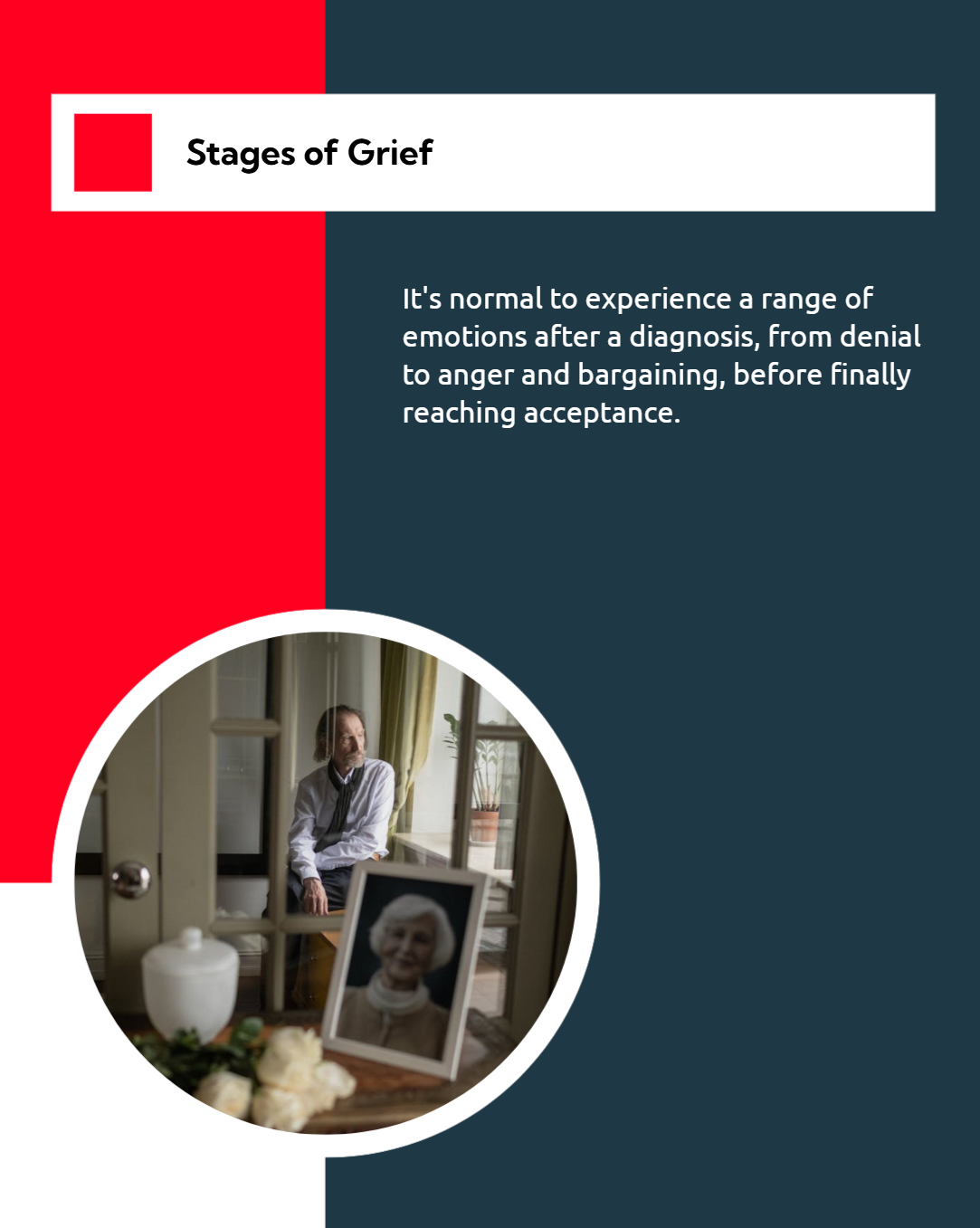
Denial is one of the first emotional hurdles to overcome. It’s a defense mechanism to shield yourself from the immediate impact. While denial can provide temporary relief, prolonged denial may prevent you from seeking necessary care.
Anger often follows. You might find yourself questioning, “Why me?” This phase can involve feelings of bitterness and frustration with yourself, your body, or even your healthcare provider.
The bargaining stage is marked by thoughts of “If only I had…” or “What if I try this instead?” It’s an attempt to regain control in an uncontrollable situation.
Depression might settle in as the reality of the diagnosis takes hold. However, acceptance, when it arrives, offers the first sense of peace and the ability to move forward with clarity.
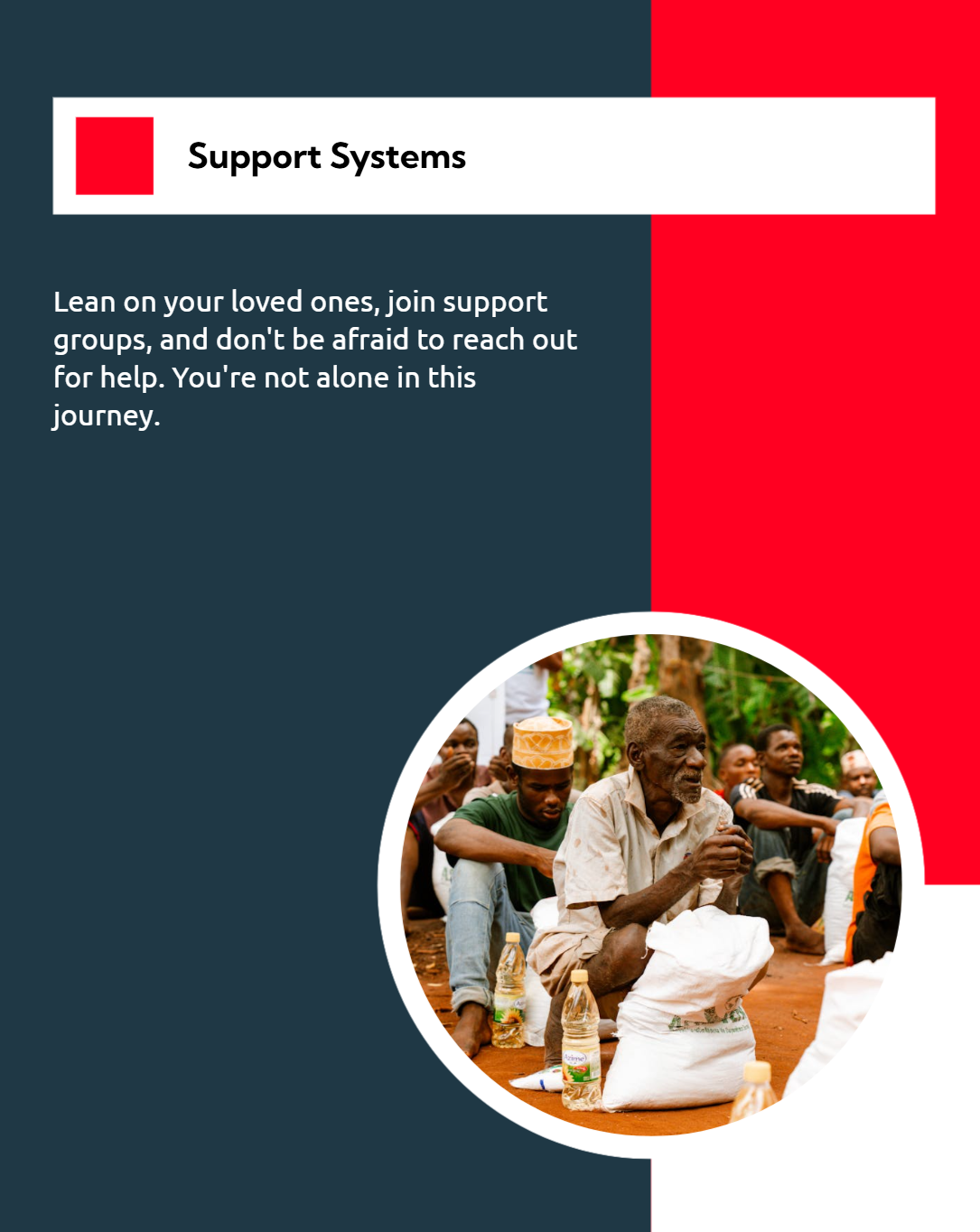
Navigating a diagnosis alone can be overwhelming. Friends, family, or support groups provide emotional anchors and remind you that you’re not alone.
Opening up about your diagnosis can be difficult. You may fear judgment or pity. However, communicating your needs allows others to understand how they can help.
Support groups, either online or in person, allow you to connect with others who have faced similar challenges. Sharing your story can lighten the emotional burden.
Anxiety about treatments, side effects, and the future is common. Health-related stress can disrupt sleep, eating habits, and daily routines.
For those diagnosed with chronic illnesses, the long-term nature of the condition can lead to ongoing mental health struggles, including depression and anxiety.
If emotions become unmanageable or interfere with daily life, consider consulting a therapist or counselor experienced in health-related issues.
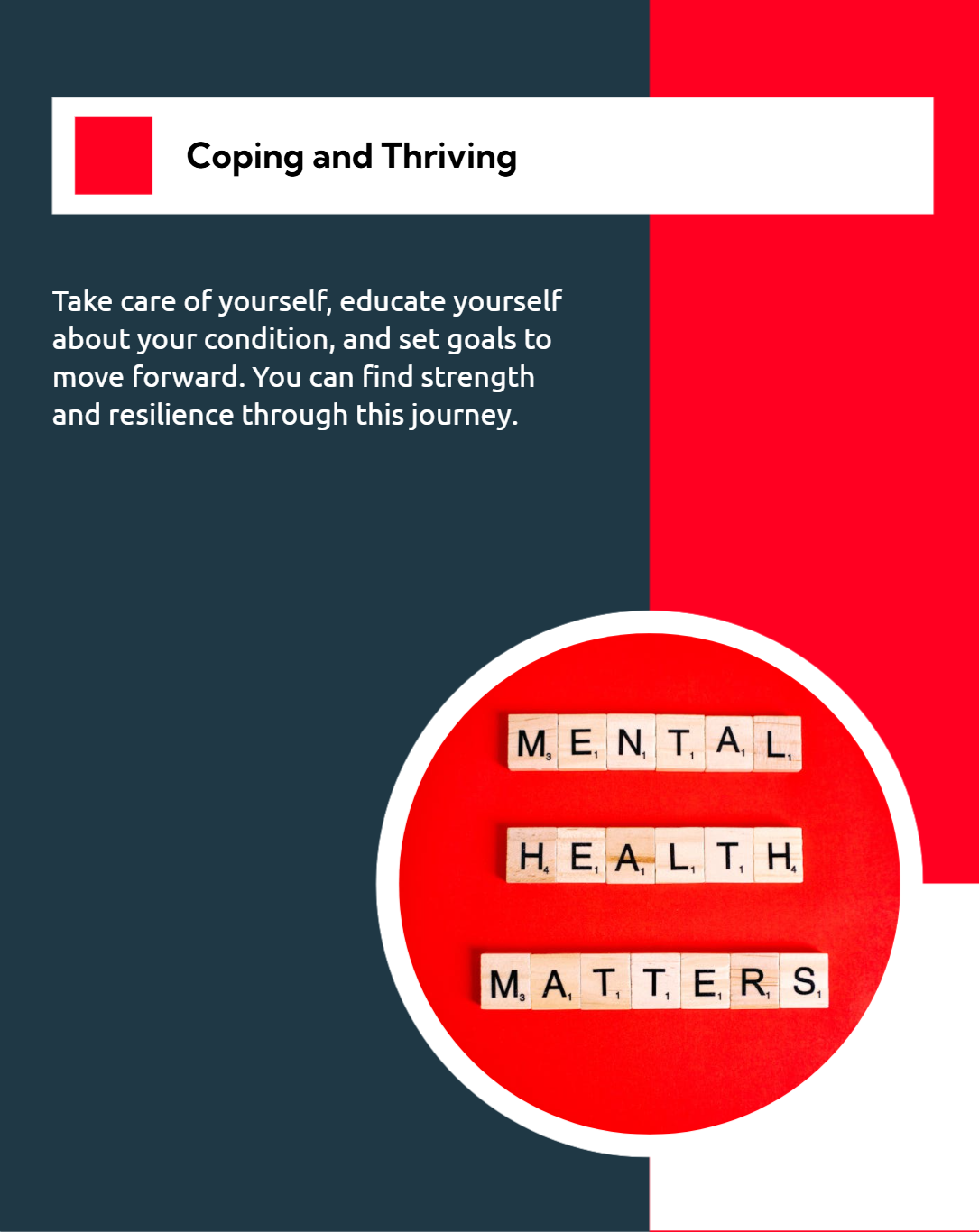
Knowledge is empowering, but too much information can be paralyzing. Stick to trusted medical sources and pace your learning.
Self-care is crucial during this time. Whether it’s a walk in nature, meditation, or simply taking time to rest, these small actions can significantly improve emotional well-being.
Focus on what you can control. Setting goals, whether related to health or personal aspirations, can give you a sense of purpose and direction.
Empower yourself by asking questions, seeking second opinions, and ensuring your voice is heard in your healthcare journey.
A diagnosis can alter relationships. While some people may step up to support you, others may distance themselves, unsure of how to help.
Chronic conditions or serious diagnoses often test romantic relationships. Open communication and mutual understanding are essential to navigating these changes.
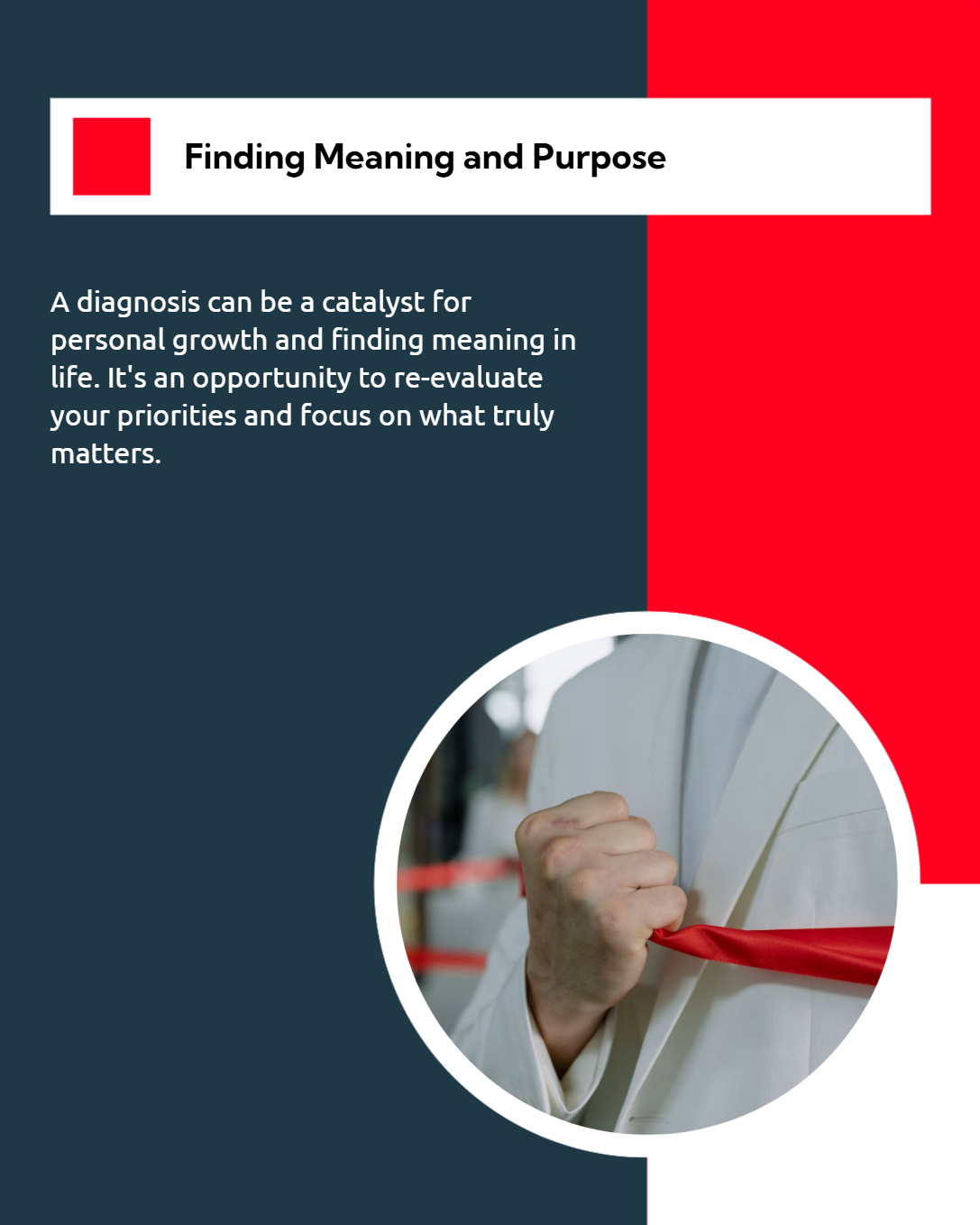
Many people report that a diagnosis, while challenging, offers an opportunity to re-evaluate priorities and focus on what truly matters.
Sharing your journey can inspire and support others facing similar challenges. Whether through blogging, volunteering, or advocacy, your story can make a difference.
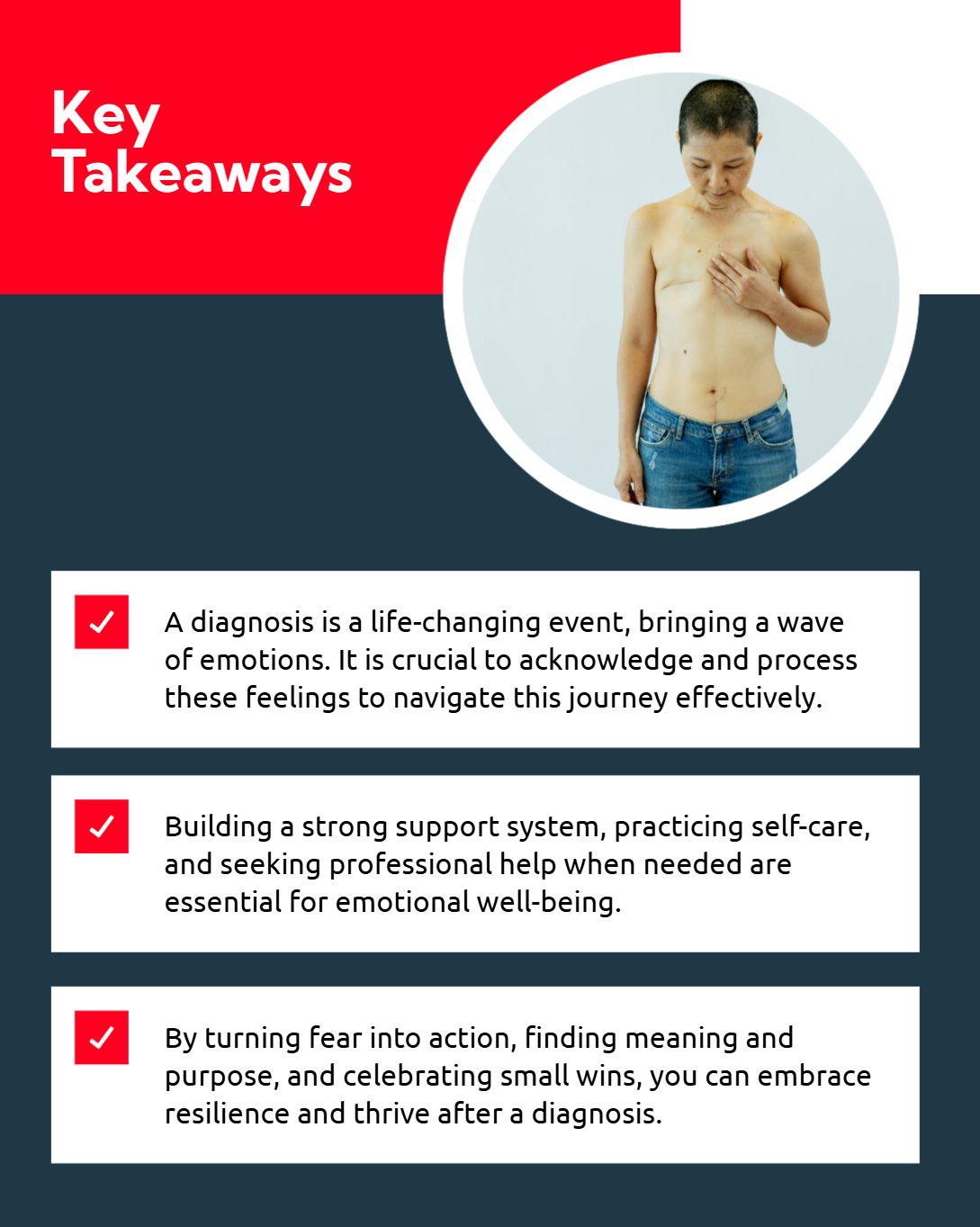
Resilience doesn’t mean avoiding pain; it means learning to navigate it. Emotional resilience is built through patience, self-compassion, and seeking support when needed.
Every step forward, no matter how small, deserves acknowledgment. Celebrating progress can help keep you motivated.
Educate yourself, build a strong support network, and focus on managing stress through mindfulness and self-care practices.
Offer a listening ear and avoid platitudes. A simple “I’m here for you” can mean a lot.
Yes, especially if the diagnosis involves visible symptoms or lifestyle changes. Therapy can help rebuild confidence.
Be honest but strategic. Share only what’s necessary and emphasize your commitment to managing your health while continuing to contribute effectively.
Yes, look into support groups, counseling services, and resources from organizations related to your specific condition.
Navigating the emotional side of a diagnosis is a journey, not a destination. By acknowledging your feelings, seeking support, and taking proactive steps, you can transform this challenging experience into one of growth and resilience.
 16.01.2025
16.01.2025